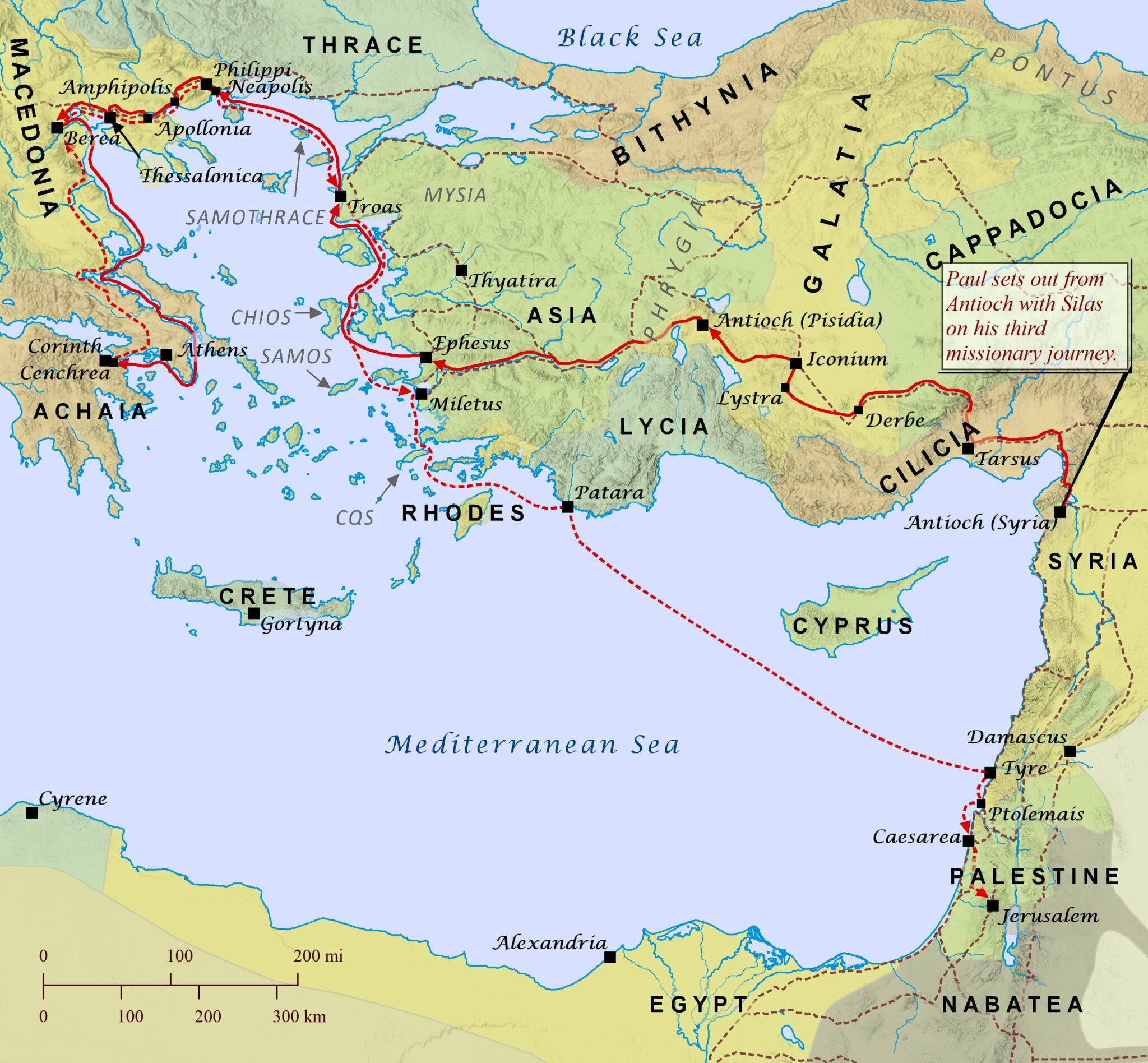Living harmoniously by faith means strong believers helping weaker believers. We should not live in a self-centered way but should help fellow believers build their faith and their relationship with God. Christ is the perfect example of this selflessness.
Paul continues to explain a principle he presented in Chapter 14, that we who are strong ought to bear the weaknesses of those without strength and not just please ourselves (v 1). Those believers who are strong in faith should uplift those weak in faith. As we saw in the last verse of the previous chapter, a key to doing this is to understand the perspective of other believers and know what sort of actions might violate their conscience; when someone violates their conscience it is to them as sin (Romans 14:23).
Accordingly, we are to have a perspective focused on others rather than ourselves. Each of us is to please his neighbor for his good, to his edification (v 2). The way we please another Christian should be to their benefit and their growth and should always be done with love. The Greek word “oikodomē,” translated as edification, means to build someone up or to establish them.
We are to fortify each other’s faith. That requires understanding what affects the consciences of other believers and avoiding being an example they might follow that would cause them to stumble. The word bear in verse 1 is the same word in Galatians 6:2 that tells us to bear one another’s burdens and so fulfill the law of Christ, by showing love to one another.
Paul’s letter to the Romans is written to believers (Romans 1:8). Paul’s goal in writing it is to dispel slanderous claims about his teaching and to show the Roman believers what righteous living by faith looks like (Romans 3:8, 1:16-17). We can speculate that it was Priscilla and Aquila who sent word to Paul about the attacks on the gospel they were experiencing in Rome. Aquila and Priscilla were fellow Jews who preached the gospel with Paul during an exile from Rome, but have now returned to their home (Acts 18:2, 18, 26). Paul sends greetings to them at the end of this letter to the Romans (Romans 16:3), so they probably had sent to Paul to ask for his help, resulting in this letter.
Paul now asserts that these competing Jewish “authorities” are actively slandering his teaching centered on faith rather than law. They are attempting to thwart his ministry in Rome, the center of the world at that time, among believers renowned throughout the nations for their faith (Romans 1:8).
Righteous (harmonious) living looks like strong believers helping weak believers, rather than ignoring their weaknesses, or using them for our personal benefit. Instead of ignoring or criticizing Christians who are still in the process of maturation, strong believers should meet them at their level and encourage growth.
Paul references Christ as an example of selflessness, for even Christ did not please Himself (v 3). Quoting Psalm 69 Paul continues: But as it is written, “The reproaches of those who reproached You fell on Me (v 3).”
This Psalm looks forward to the Messiah, who is Jesus. Jesus was someone who bore others’ burdens and did not live for Himself, even to the point of death. He took our condemnation upon Himself, suffering for us. We are to interact with people the way Christ interacted with them.
In his letter to the Philippians, Paul expounds on this point further, exhorting believers to adopt the same mindset Jesus adopted, which was to follow Christ in obedience, even to the point of dying on the cross for the sins of others (Philippians 2:5-9). It was in this way that Christ was granted the greatest of rewards from His Father. This is a key theme of scripture, that we find our greatest fulfillment in life by setting aside self and serving others (Matthew 16:24).
Biblical Text
1 Now we who are strong ought to bear the weaknesses of those without strength and not just please ourselves. 2 Each of us is to please his neighbor for his good, to his edification. 3 For even Christ did not please Himself; but as it is written, “The reproaches of those who reproached You fell on Me.”
Check out our other commentaries:
-
Zechariah 4:8-10 meaning
Zechariah learns that Zerubbabel, who laid the temple foundation, will complete it because the LORD watches over all the events of the world....... -
Matthew 20:17-19 meaning
As Jesus and His disciples are about to go to Jerusalem, He pulls them aside to remind them about His arrest, trial, crucifixion, and resurrection...... -
Psalm 1:1-6 meaning
God’s way is meant for our benefit and blessing. When we rebel, when we sin, or mock, or go our own way, we will reap...... -
Daniel 6:25-28 meaning
Darius makes a new decree that declares Daniel’s God ruler....... -
Proverbs 4:10-13 meaning
Solomon, having completed his testimony about how he received wisdom, goes on to explain what to expect from a life of wisdom.......



